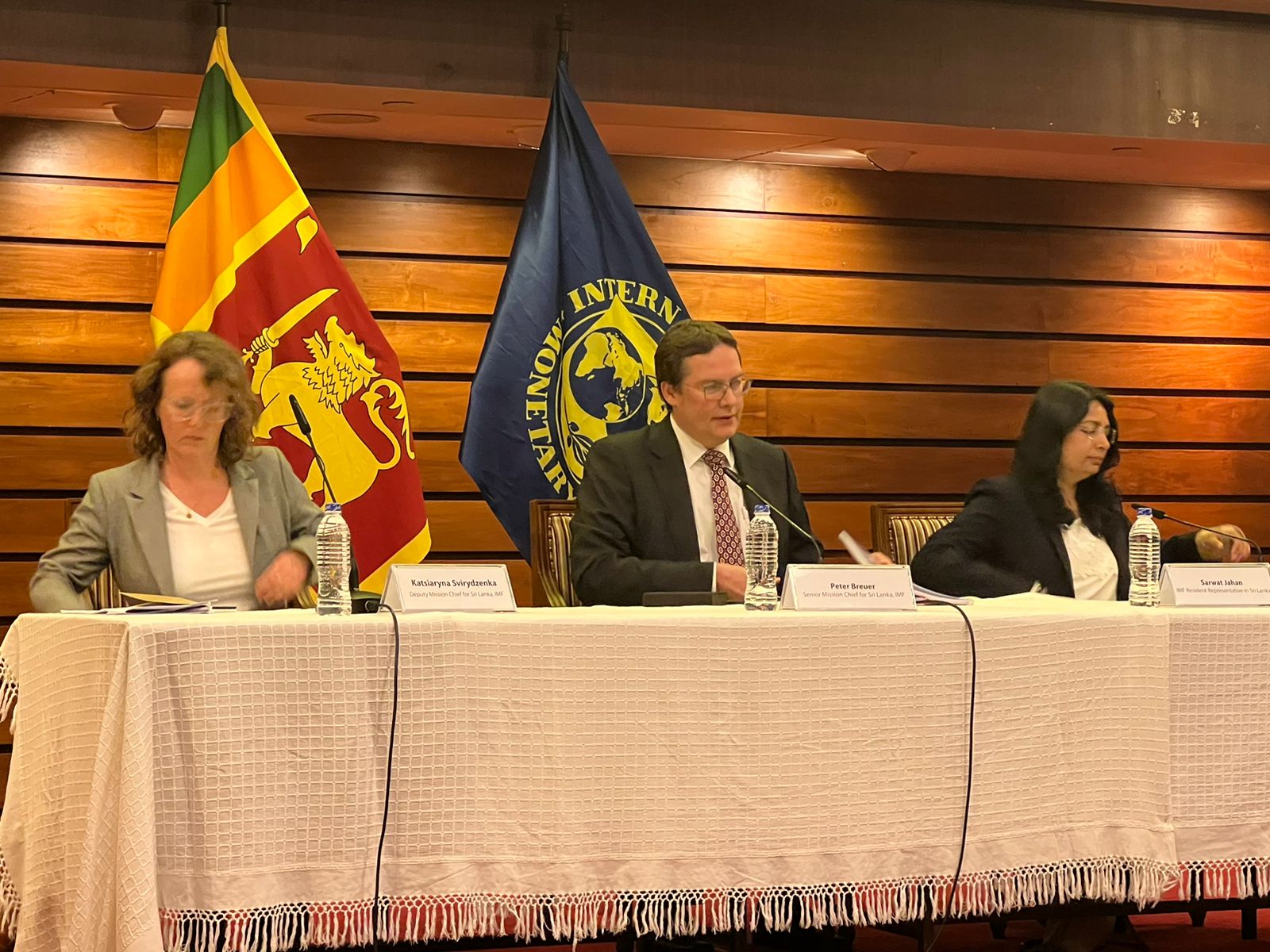Sri Lanka’s agreements with China and other creditor nations to restructure about $10 billion in bilateral debt brought it a step closer towards restoring debt sustainability, the International Monetary Fund (IMF) said on Thursday.
The island nation signed deals with China and other creditor nations to restructure about $10 billion in bilateral debt on Wednesday, helping it approach the end of a restructuring process that began in September 2022 after its reserves hit record lows and forced it to default on foreign debt for the first time.
Sri Lankan officials in Paris inked the agreement with the Official Creditor Committee (OCC) co-chaired by Japan, India and France that have lent a combined $5.8 billion.
The committee is now awaiting details of a separate agreement that was signed with China EXIM Bank to rework $4.2 billion to be shared with them to ensure comparability of treatment, OCC said in a statement.
Sri Lanka, however, still needs to convince bondholders to restructure about $12.5 billion in international bonds.
“We hope that there will be swift progress on reaching agreements with external private creditors in the near future,” Peter Breuer, IMF’s senior mission chief for Sri Lanka, said in a statement.
Bilateral lenders said they hoped an agreement with bondholders would be “on terms at least as favourable as the terms offered by the OCC.”
The restructuring of bilateral debt agreements was one of the key conditions set by the IMF under a $2.9 billion bailout programme that helped Sri Lanka tame inflation, stabilise its currency, and improve government finances.
The central bank estimates the economy will expand 3% in 2024 after contracting 2.3% last year.
Sri Lanka, whose total external debt is $37 billion, also has to finalise arrangements with China Development Bank to restructure debt of $2.2 billion, according to latest finance ministry data.
Under the restructuring plan, Sri Lanka can delay repaying bilateral creditors till 2028. During this period, the government and creditors can arrange new loans out to 2043.
Once the restructuring is completed, Sri Lanka aims to reduce its debt by $16.9 billion, the government said.
It will seek approval from parliament on July 2 to proceed with the deals, President Ranil Wickremesinghe said during an address to the nation late on Wednesday.
The debt restructuring will help the cash-strapped nation more than halve its foreign debt repayments to 4.5% of gross domestic product between 2027-2032, from 9.2% in 2022 at the peak of the economic crisis.
But the country has to still improve governance and stay on the path of reforms, including implementing legislation to lock in IMF-stipulated fiscal targets, impose a property tax, and limit lending by state banks to loss making state-run companies, according to analysts.
Recovery could also face headwinds from upcoming presidential elections scheduled to be held before mid-October.
“There is now the chance Sri Lanka can access undisbursed loans from bilateral lenders, particularly for infrastructure projects that were stalled, or get new loans,” said Thilina Panduwawala, head of research at Frontier Research.
“But it could be next year by the time they get these up and running because elections can also delay that process.”
Source: Reuters


